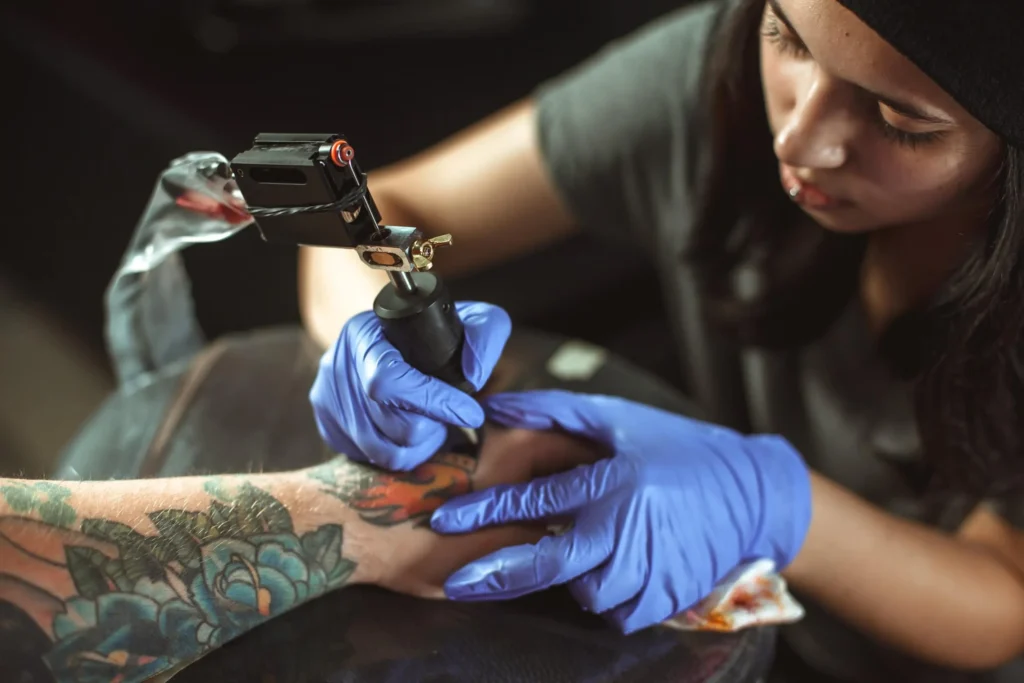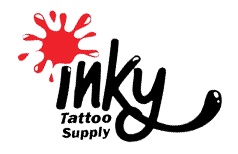You know, it’s funny, when I tell people I’m a tattoo artist, I often get this look – a mix of intrigue and curiosity, sometimes a little awe. And almost always, the question follows: “How did you even get into that?” It’s not like going to college for accounting, right? Becoming a tattoo artist is a journey, a real commitment, and it’s definitely not for the faint of heart. But if you’ve got the passion, the artistic drive, and the dedication, it’s one of the most rewarding paths you can take.
So, you’re thinking about diving into the world of ink? Awesome! Let me walk you through what it really takes, from my own experience and what I’ve seen in the industry.

It All Starts with the Art (Seriously, All of It)
Before you even think about picking up a tattoo machine, you need to be an artist. And I don’t just mean dabbling with a sketchbook now and then. We’re talking about a serious, consistent, and evolving artistic practice.
- Foundation, Foundation, Foundation: Can you draw? Really draw? Not just tracing, but understanding anatomy, perspective, light and shadow, composition? You need to be able to render a wide variety of subjects convincingly. Think about it: clients come in with all sorts of ideas, from photorealistic portraits to traditional Japanese dragons. You need to be versatile.
- Explore Different Mediums: Don’t limit yourself to just pencil and paper. Experiment with painting (watercolor, acrylics, oils), digital art, charcoal – anything that helps you understand color theory, blending, and different textures. The more tools you have in your artistic toolbox, the better you’ll be able to translate those skills to skin.
- Build a Portfolio (A Real One): This isn’t just for art school anymore. Your portfolio is your resume in the tattoo world. Fill it with your strongest, most diverse work. Show off your versatility and your unique style. And be critical of your own work – only put in pieces you’re truly proud of.
The Apprenticeship: Your Golden Ticket (and Hardest Hurdle)
This is where the rubber meets the road. There’s no formal “tattoo artist college.” The industry operates on an apprenticeship model, and let me tell you, it’s incredibly competitive to land one.
- Finding the Right Mentor: This is crucial. Don’t just walk into the first shop you see. Research local shops, look at their artists’ portfolios, and get a feel for their style and professionalism. You want to learn from someone whose work you admire and who runs a reputable, hygienic establishment.
- Persistence is Key: Once you’ve identified a few potential shops, it’s time to put yourself out there. Go in person, introduce yourself, and politely ask if they offer apprenticeships. Be prepared to show your portfolio. Don’t just drop it off and leave; engage, ask questions, and show your genuine interest. Be prepared for rejection – it happens. A lot. But don’t give up.
- Be Patient (Very Patient): Apprenticing isn’t glamorous. You’ll likely spend months, or even a year, cleaning, answering phones, setting up stations, breaking down stations, running errands – basically anything to help the shop run smoothly. You’re proving your dedication, your work ethic, and your respect for the craft. You’ll learn about sterilization, cross-contamination, client interaction, and the flow of a busy tattoo shop long before you even touch a machine.
- Learn to Observe and Listen: This is your classroom. Watch how the artists work. Ask questions (but only when appropriate and not disruptive). Pay attention to their techniques, their client consultations, and how they handle different situations. Listen to their advice and constructive criticism.
- The First Tattoo (on Actual Skin!): This moment is terrifying and exhilarating. Your mentor will guide you through your first few tattoos, usually on fruit or practice skin, before you ever work on a human. And even then, your first human canvases will likely be friends or family, and only under strict supervision. It’s a gradual process, and your mentor will only let you progress when they deem you ready.
Beyond the Apprenticeship: The Lifelong Journey
Congratulations, you’re a tattoo artist! But the learning never stops.
- Building Your Book: Now you need clients. This means continuing to refine your style, promoting your work on social media, attending conventions (when you’re ready), and building a reputation for quality work and professionalism. Word-of-mouth is huge in this industry, so treat every client like gold.
- Honing Your Skills: Different skin types, different body parts, different design challenges – you’ll constantly be encountering new situations. Stay curious, experiment with new techniques, and continue to draw and paint. The best artists never stop learning.
- Health and Safety are Paramount: Seriously, I can’t stress this enough. Understanding bloodborne pathogens, proper sterilization techniques, and maintaining a scrupulously clean workspace is non-negotiable. This isn’t just about protecting your clients; it’s about protecting yourself and the integrity of the entire industry. Stay up-to-date on all health regulations.
- Business Savvy: Whether you’re working for a shop or eventually plan to open your own, you’ll need some business acumen. Understanding pricing, scheduling, client communication, and even basic accounting will be essential.
- Develop Your Own Style: While versatility is important, as you grow, you’ll naturally gravitate towards certain styles or develop a unique aesthetic. This is what will make you stand out and attract clients who specifically seek your work.
Is it for You?
Becoming a tattoo artist is a demanding path. It requires incredible patience, resilience in the face of setbacks, a thick skin (pun intended!), and an unwavering passion for art. There will be long hours, challenging clients, and the constant pressure to deliver high-quality, permanent art.
But on the flip side, there’s the immense satisfaction of bringing someone’s vision to life, of creating a piece of art they’ll carry with them forever. There’s the camaraderie with fellow artists, the opportunity for constant creative expression, and the joy of seeing your skills improve with every piece.
If you’re ready to put in the work, to dedicate yourself to the craft, and to embrace a journey that’s as much about personal growth as it is about artistic mastery, then welcome to the world of ink. It’s a wild, wonderful, and incredibly rewarding place to be.




Leave a Reply